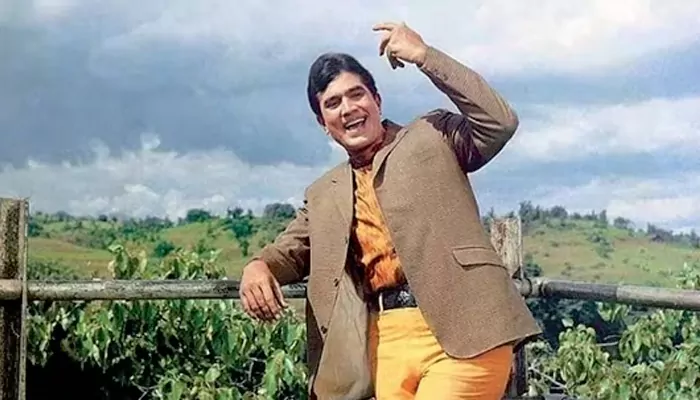
"Babumoshai, zindagi badi honi chahiye, lambi nahi!" - and Rajesh Khanna himself lived by that philosophy.
There was a time in Hindi cinema when one name alone could guarantee box office success. And that name was Rajesh Khanna. The first true superstar of Indian cinema, he was (and there's no other way to put it) a phenomenon. During the early '70s, he was so dominant that producers would line up outside his home, hoping to get his dates. Writers penned scripts with only him in mind. Schedules across studios would be adjusted to accommodate just him.

Well, Khanna's stardom wasn’t measured in just fan mail or applause (though there was plenty). It was measured in something that Bollywood still obsesses over: consecutive box office hits. And in that regard, Rajesh Khanna did the unthinkable. Today, on his 13th death anniversary, let's learn about an interesting fact about him that you didn’t know.
Between 1969 and 1971, Rajesh Khanna delivered 17 consecutive box office hits, which is still a record untouched today. Out of these, 15 were solo hero films, and 2 were two-hero films. To achieve this level of consistency, especially during a time when the industry wasn’t as marketing-driven as it is now, speaks volumes about his pull and charisma.
“...आनंद मरा नहीं ... आनंद मरते नहीं...”
— Film History Pics (@FilmHistoryPic) July 18, 2020
Remembering RAJESH KHANNA
(29 Dec 1942 - 18 Jul 2012) pic.twitter.com/Iz4IvmmW1e
(Credit: Film History Pics)
It all began in 1969 with the release of 'Aradhana', a romantic musical where he starred opposite Sharmila Tagore. The film was an instant blockbuster and launched him into superstardom. That same year, 'Do Raaste', a family drama co-starring Mumtaz, also made waves. But the stardom wasn’t only about acting. It was a perfect storm combining his charm, romantic image, unique dialogue delivery, and above all, the music. The trio of Rajesh Khanna, R.D. Burman, and Kishore Kumar gave Hindi cinema some of its most iconic songs. Tracks like "Mere Sapno Ki Rani", "Roop Tera Mastana", "Yeh Shaam Mastani", and "Zindagi Ek Safar Hai Suhana" became anthems of an era. And remember, it was a time when songs contributed a lot to the film's success.
His mannerisms were mimicked and his clothes were copied, while his posters were worshipped. Female fans went to unbelievable lengths; some wrote letters in blood, others held weddings with his photographs. It was pure hysteria. As Shah Rukh Khan once said, "Rajesh Khanna, you can’t touch." Even Salman Khan admitted, "I, Shah Rukh or Aamir, none of us have even achieved 10% of what Rajesh Khanna had, in terms of acting or superstardom."

During this period, as actor Tom Alter once noted, “Khanna was the only hero, romantic to the core, not larger than life, so Indian and real.”
'Do Raaste' became the first Indian film to gross £100,000 in the UK, a massive number at the time.
Khanna’s 1971 release 'Haathi Mere Saathi' was the highest-grossing film of the year and is still fondly remembered, especially by children of that era.
'Anand', one of his most critically acclaimed performances, earned him the Filmfare Best Actor Award and immortalized his screen presence.
By the late '70s, changing political and cinematic landscapes (especially the Emergency era) shifted audience preferences toward action and intensity. The era of the angry young man had arrived, and stars like Amitabh Bachchan began dominating the scene. As a result, Khanna’s romantic hero image slowly lost ground. Still, he made a strong comeback with films like 'Avtaar' in 1983, which was both a critical and commercial success.